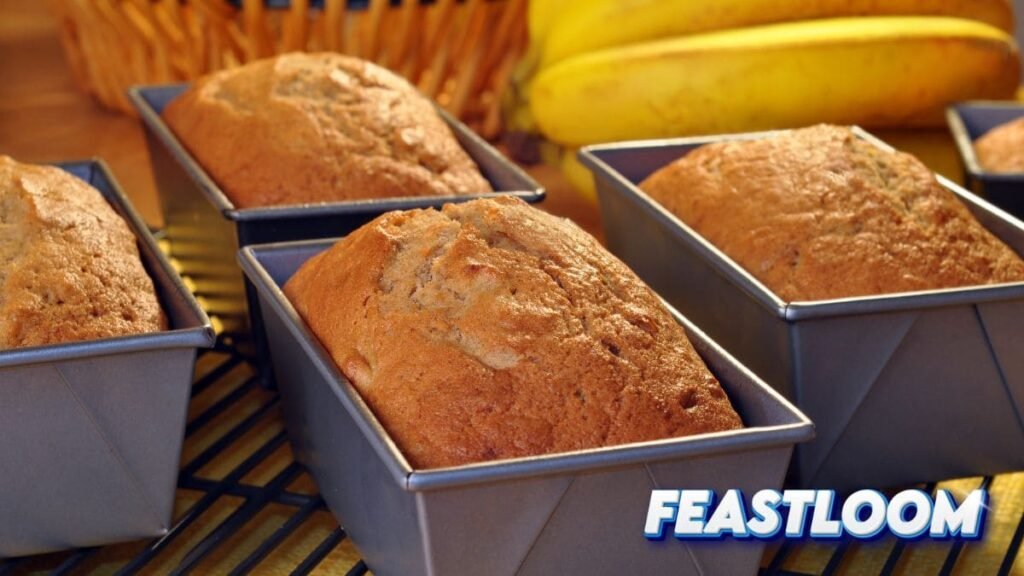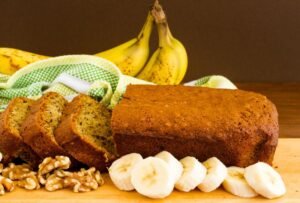Can vegan banana bread lower environmental impact compared to traditional?

Can vegan banana bread lower environmental impact compared to traditional?
Introduction
The global rise in demand for vegan food, partly driven by concerns for animal welfare and also by growing awareness on health and environmental impacts of livestock farming, has prompted us to investigate a simple yet fascinating question: Can vegan banana bread lower environmental impact compared to traditional?
In this comprehensive article, we will strive towards a well-rounded understanding of the environmental implications of traditional and vegan banana bread recipe. We will delve into aspects like greenhouse gas (GHG) emissions, the use of water, deforestation, and other environmental factors, providing an informed answer to this query, and hopefully nudging you towards a more eco-friendly choice in your bakery preferences.
The Traditional Banana Bread – Whats the Environmental Impact?
The traditional banana bread is mostly made using eggs, milk, butter – all of which are animal-based products. The environmental impact of producing these ingredients is significant.
Greenhouse Gas Emissions
According to a study by the Food and Agriculture Organization (FAO) of the United Nations, the livestock sector alone is responsible for approximately 14.5% of total global greenhouse gas emissions. This is more than all cars, trains, and airplanes combined.
Water Usage
Animal farming also requires large quantities of water. For instance, producing a single liter of cow’s milk demands an average of 1,020 liters of water.
Deforestation
Traditional banana bread’s ingredients also contribute to deforestation, given the vast land required to rear animals. In fact, livestock farming is a leading cause of deforestation, especially in countries like Brazil and Argentina.
Vegan Banana Bread – An Environmentally-Friendly Alternative?
Vegan banana bread, on the other hand, is made without using any animal-based products. Instead of eggs, milk, and butter, alternatives such as plant-based milk, vegetable oil, and apple sauce may be used. But how do this translate for our environment?
A Reduction in Greenhouse Gas Emissions
Switching to vegan ingredients can significantly lower greenhouse gas emissions. According to a research published in Science journal, vegan diets can reduce food’s annual greenhouse gas emissions by up to half.
Saving Water
Plant-based milk such as almond, oat, or soy requires considerably less water to produce than cow’s milk. Thus, using these alternatives in vegan banana bread can save on water usage.
Less Land Use
By swapping animal-based ingredients with plant-based ingredients, vegan banana bread requires less land to produce its ingredients. This could potentially result in less deforestation, maintaining biodiversity and ecosystems’ health.
In A Nutshell
Based on the environmental advantages of vegan baking, the answer to our original question – can vegan banana bread lower environmental impact compared to traditional – seems to be a resounding yes. Not only does the vegan alternative reduce greenhouse gas emissions and save on water and land usage, it also results in a much-needed reduction in the rate of deforestation.
However, it’s important to note that vegan does not automatically mean “100% eco-friendly.” Other factors like the sourcing of ingredients, the energy efficiency of the baking process, and the disposal of waste need to be considered too. But it’s a step in the right direction, a small yet significant stride towards more responsible, sustainable food choices, for us and our planet.
We hope this comprehensive exploration has provided you with valuable insights. Next time you are out to get or bake your banana bread, remember that choosing the vegan option is not only beneficial for your own health, but it also contributes to reducing your carbon footprint and creating a more sustainable world.

Learn More
Conclusion:
Conclusion
The concept of diet affecting environmental impact is gradually gaining recognition. As such, adopting a vegan diet – such as incorporating foods like vegan banana bread – can indeed play a significant role in reducing environmental impact. Vegan produce utilizes fewer resources in terms of land, water, and energy, thereby diminishing greenhouse gas emissions. Conventional banana bread often contains ingredients derived from animals – the production of which is linked to higher resource use and pollution. By choosing the vegan alternative, we can promote a more sustainable food system. However, it’s essential to acknowledge that going vegan is not the only solution and other factors like reducing food waste and supporting sustainable farming practices should also be considered.
FAQ:
FAQ
1. Can vegan banana bread lower environmental impact compared to traditional?
Yes, due to the lesser resources required for the production of vegan ingredients, choosing vegan banana bread can lower environmental impact.
2. How does a vegan diet affect the environment?
Veganism tends to require lesser land, water, and energy resources, thereby reducing greenhouse gas emissions and agricultural pollution.
3. Does vegan banana bread taste like traditional banana bread?
Yes, vegan banana bread can taste very similar to traditional banana bread while being a more environmentally-friendly choice.
4. Is vegan production always more environmentally friendly?
Generally, vegan production uses less resources and contributes to fewer emissions. Yet, factors like the method of sourcing and production, food miles, and waste also play important roles.
5. Is the shift to veganism the ultimate solution to reduce environmental impact?
Although it can significantly reduce impact, it shouldn’t be seen as the only solution. It is important to consider other factors like reducing food waste and supporting sustainable farming practices.
6. What are other ways to lower the environmental impact of our diet?
Other ways include reducing consumption of highly processed foods, reducing food waste, and favoring locally sourced and seasonal produce.
7. What is the main difference in ingredients between vegan and traditional banana bread?
Traditional banana bread usually contains ingredients like eggs and butter, which are replaced by plant-based alternatives in vegan banana bread.
Can vegan banana bread lower environmental impact compared to traditional?

When you make purchases through the links available on our site, we may receive an affiliate commission at no additional cost to you.



